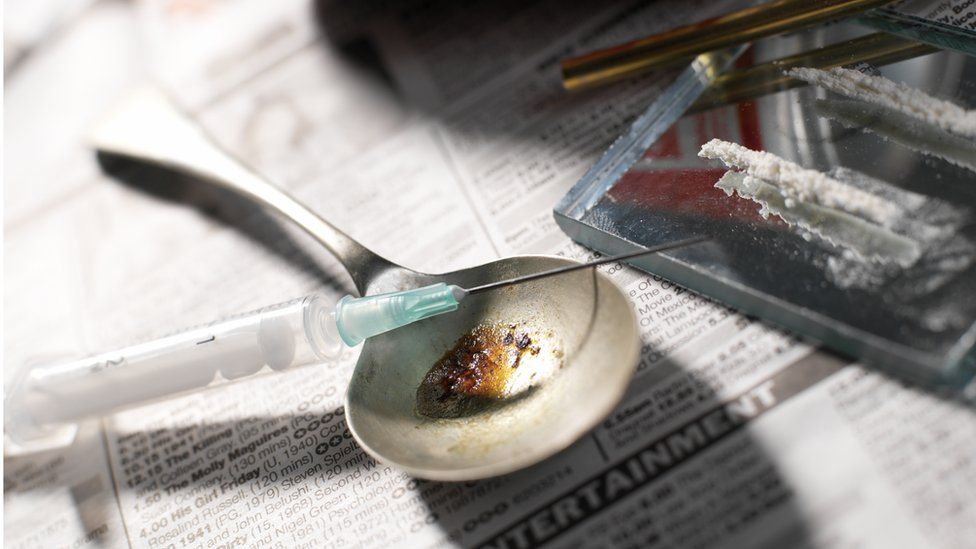Oregon voters to decide on decriminalising hard drugs in US first
- Published

Voters in Oregon are being asked to decide whether to decriminalise the possession of small amounts of hard drugs, including heroin and cocaine.
Measure 110 aims to expand access to drug treatment and recovery services, in place of jail time.
If approved, it would be the first legislation of its kind to be passed in the US. Opponents say it risks normalising the most dangerous drugs.
The vote on Tuesday coincides with the US presidential election.
It is just one of many measures that voters in US states are being asked to approve or reject. Others include proposals on abortion rights, taxes and the legalisation of marijuana.
Under Oregon's Measure 110, people caught with small amounts of drugs for their personal use will have the option of paying $100 (£77) fines or attending free addiction recovery centres.
The recovery centres would be funded in part by tax revenues from Oregon's legal, regulated marijuana industry.
The amounts covered by the proposed legislation vary for different drugs, and include less than one gram of heroin, or two grams of cocaine.
Violations of the state law against drug possession currently carry a maximum penalty of a $6,250 fine and up to a year in jail.
People who manufacture or distribute the drugs will still face criminal punishment if Measure 110 is approved.
The measure is supported by the Oregon Nurses Association, the Oregon chapter of the American College of Physicians and the Oregon Academy of Family Physicians.
"Punishing people for drug use and addiction is costly and hasn't worked. More drug treatment, not punishment, is a better approach," the groups said in a statement.
It also has the backing of three district attorneys, including the top prosecutor in Oregon's most populous county, the Associated Press news agency reports.
Facebook CEO Mark Zuckerberg and his wife, Priscilla Chan, have also backed the measure, making a major donation to the campaign through their Chan Zuckerberg Initiative.
However, some two dozen district attorneys have opposed it, saying it "will lead to an increase in acceptability of dangerous drugs".
Countries including Switzerland, Portugal and the Netherlands have already taken similar measures to decriminalise possession of small amounts of hard drugs and invest in "harm reduction programmes", according to the United Nations.
Portugal's radical decision to decriminalise all drugs
- Could TikTok influence the election result?: How the app and its users are changing US politics
- US election: Facts or fiction?: Exploring the candidates' claims during the campaign
- Published16 October 2020
- Published24 September 2018